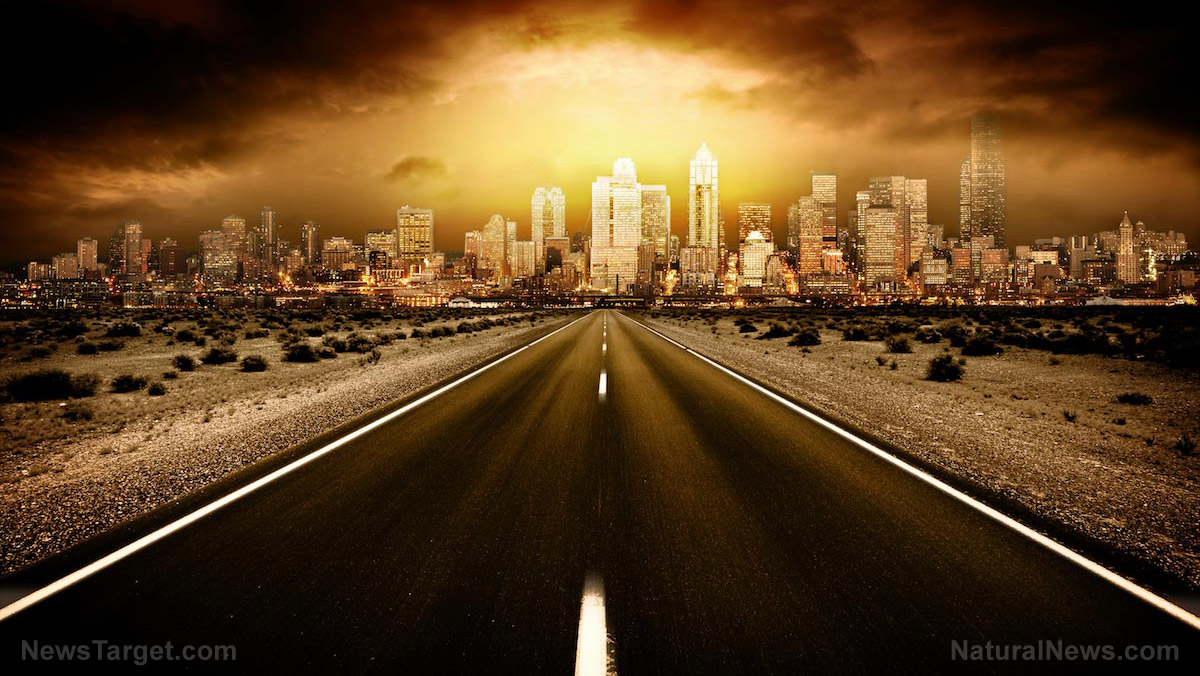Many Americans rarely if ever consider the issues of fundamental survival. By “survival”, I do not mean having a successful career, a low rate mortgage, a savings account, pension fund, nest-egg, etc. These are illusory means of survival in an economy not based in reality, but held together by deceptive government policies and a general lack of awareness in the population. The system we live in today is flawed in every sense, in terms of debt to savings, government spending versus government revenue, monetary policy, stock market value versus concrete company earnings, reported unemployment versus real unemployment, and numerous other factors. In my years observing and writing on our financial system, I have not found a single sector of the economy that is NOT in disarray or on the verge of complete collapse (except precious metals and certain other commodities). None of the methods for self-sustainment we are accustomed to today are even remotely practical under such conditions. Any American hoping to protect his family’s well being, or their freedoms, must realize and accept one simple fact:
The world we live in today is not necessarily the world we will live in tomorrow. Assumptions can kill…
(Article republished from Survivaldan101.com)
There is nothing paranoid about survival preparation. Actually, those people who really believe that they are completely safe from any national catastrophe, or that they can rely on the Federal Government for total support during a crisis, are either terrifyingly stupid, or bewilderingly insane. In light of FEMA’s performance during the Katrina incident, an ill-conceived trust in our bureaucracy to protect us is utterly outdated and foolish. In fact, FEMA’s actions only made the situation in New Orleans worse, and caused substantial loss of life. NEVER, ever, put your fate in the hands of strangers, especially strangers from government organizations that have little to no vested interest in your well-being.
The following information is meant for those who are already well on their way towards survival preparedness, covering more advanced strategies and gear.
For the sake of being thorough, let’s briefly rehash the Big Four…
Shelter: The issue of shelter is highly dependent on which strategy you plan to use during a crisis; ‘homestead’ or ‘retreat’. If you feel that your best bet is to remain at home and fortify your position there, then you are what I would call a “homestead survivalist”. If you feel that the place you live now will not be safe or is not defendable during a collapse, then you will probably make plans to fall back to a “retreat” location. Each strategy has advantages and disadvantages.
Homesteaders have the advantage of setting up their survival situation where they are everyday, plus they probably know the surrounding terrain like the back of their hand. During a collapse, Homesteaders don’t have to worry about the dangers of traveling to a safe location since they already live in a protected area, and they don’t have to worry about how to transport all their supplies. However, some homesteaders do not make a backup plan, and tend to put all their eggs into one basket. Homesteaders should not assume that they will be able to stay where they are permanently, and should always have a retreat setup as well.
Retreatists are survivalists who have taught themselves to make no assumptions and to rely on ingenuity rather than a vast supply of goods. They know how to streamline, organize, and make do in expert fashion. They have a preset location (or several) that they have scouted and deemed prime for safety. They also have the advantage of mobility in the event that one location is compromised. Their obstacles though are many. Getting to a retreat location can be very difficult without foresight into what is happening in the country around them. If they miss the signs of imminent collapse, they can be caught with their pants down and unable to go anywhere. Also, Retreatists have severe logistical concerns; moving supplies to the retreat, dealing with limited resources due to space limitations, sacrificing extra food and gear for speed, etc. There are inventive ways to counter these problems, but they will always exist for the Retreatist to some extent.
Despite common perceptions on survival, people in the country are not necessarily any better off than people in the city, they just have a different set of problems. City survival is possible, but requires greater planning in terms of water collection, food storage, and defense. Cities also become pits of disease during collapse. Fires can burn down entire blocks including your retreat if it’s not protected. Rioting and looting will be widespread, but if you know how to stay out of sight, the chaos could actually camouflage you. Collapses in cities historically bring out hoards of amateur snipers, making extended foot travel during the day nearly impossible. Country dwellers will have to contend with the masses of wandering refugees from the cities looking for protection and sometimes handouts. Dealing with otherwise harmless people who are starving and unprepared will bring up considerable conflicts of conscience. How much can you help without putting yourself in jeopardy? Which people deserve to be helped, and which people represent a liability? The answer will be different for every survivalist. Country survivalists who do not have an adequate community of people for defense are at serious risk. Looters can be vicious beyond imagining. Study the history of the Bosnian/Serbian breakdown during the mid 1990’s for insights into this. Any country retreat without solid defense will be overrun by people whose only care is their own survival. Some men will stop at nothing to get what they want. History is filled with nightmarish examples…
Read more at: Survivaldan101.com


